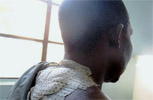
This post originally appeared on the website Politics3.com.
The Lord’s Resistance Army (LRA), a rebel force originally from Northern Uganda, continues to be a threat to civilians after twenty-three years of war. In 2005, the International Criminal Court (ICC) indicted the head of the LRA, Joseph Kony, and four other commanders for crimes against humanity, including murder, sexual enslavement and rape.
During the last eighteen months, the LRA has been killing and abducting civilians in the Democratic Republic of Congo (DRC), Central African Republic (CAR) and South Sudan, becoming a destabilizing force in an already volatile region. Despite an ongoing military offensive led by the Ugandan military with the support of regional armies, the rebels have continued to wreak havoc. In the last year and a half, the LRA has killed close to 2000 civilians and abducted over 2600 people. More than 700 abductees are children who were forced into fighting or sexual slavery.
Presently, a new US legislative bill aimed at addressing the situation created by the LRA has very good chances of passing in both the House and Senate this March. If passed into law, the ‘LRA Disarmament and Northern Uganda Recovery Act’ will require the Obama administration to develop a multilateral strategy that would focus on helping communities devastated by LRA violence and eliminating the LRA threat.
As part of my work covering the LRA, I have been traveling to most of the LRA affected areas, where I have conducted numerous interviews with victims of LRA violence and policymakers alike. Based on my findings on the ground, there are at least five important actions that the policy team in charge of designing a multilateral strategy to address the LRA issues should focus on.
Click here to continue reading and view the accompanying slideshow.
Photo: A victim of an LRA attack in eastern Congo (Enough/Ledio Cakaj)

